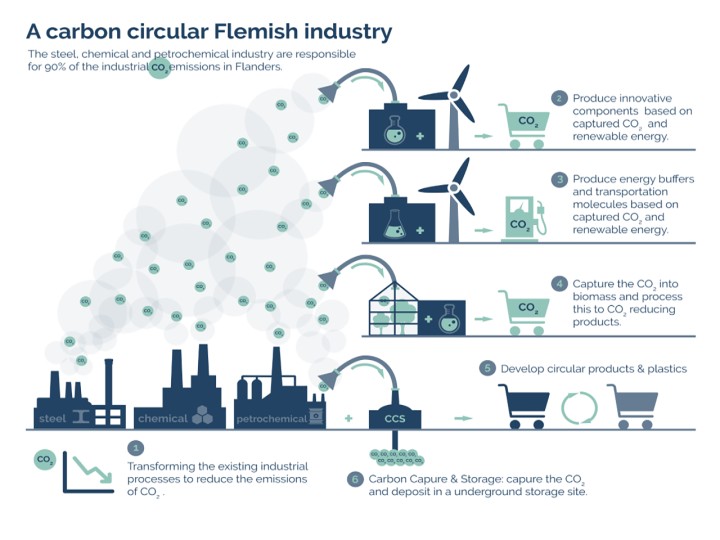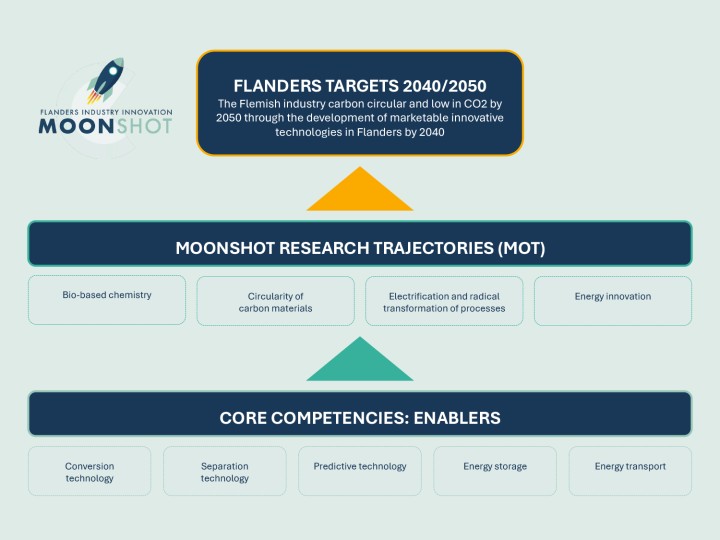Flanders faces a unique challenge in transitioning towards a carbon circular and carbon smart industry. Flanders is a highly developed, densely populated and intensively industrialized region. At present, most of its industries are energy-intensive and deeply dependent on non-renewable raw materials. To ensure a sustainable shift by 2050, existing industries will have to be converted and new industries will have to be created. The Moonshot initiative seeks to support Flanders’ industry innovation and transition towards a carbon circular and carbon smart industry.
As the Flemish refining, chemical, and iron & steel sectors are a significant source of CO2 emissions, these three sectors are the main target of the Moonshot initiative. Over the last few decades, these target sectors have already dramatically reduced their own CO2 emissions and helped other companies reduce theirs through new product and/or process development. In future, the refining, chemical, and iron & steel sectors will remain critical to achieve a sustainable shift.

